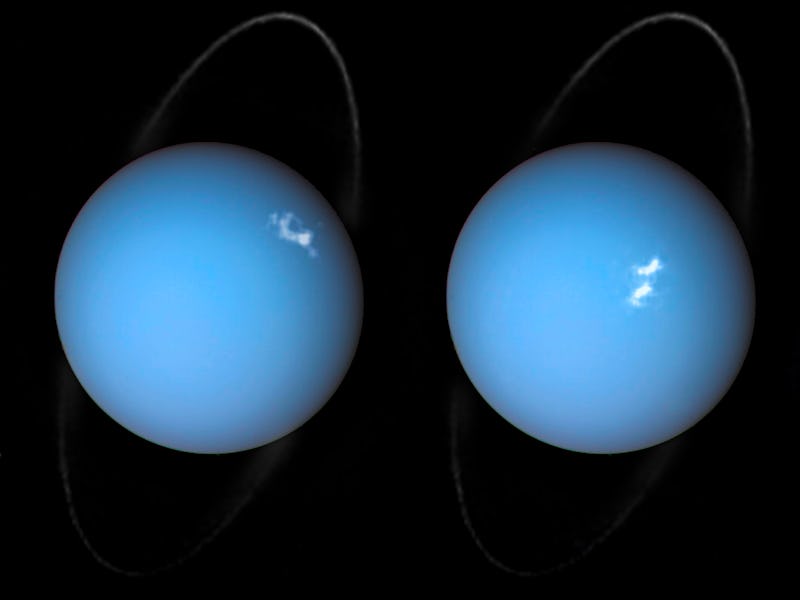Tonight Is the Best Night to See Uranus (Ha-Ha)
Bring your jokes and a telescope.

The unfortunate victim of scatological jokes, Uranus, plans to outshine the haters tonight with its blue-green glory in the night sky. The ice giant will be in opposition with the Sun, hitting its highest point around midnight, 60 degrees above the southern horizon, and it will hit its perigee, coming as close as it can to Earth.
If you’re looking for the best night to see a planet, its time “in opposition” is your best bet. From the perspective of Earth, a planet in opposition is located opposite the Sun, leaving us as the middle of a planetary sandwich. Well-lit by the Sun and at its closest position to Earth, this makes for optimal viewing conditions. You’ll have the whole night to catch a glimpse of Uranus, from around 8 p.m. to 5:30 a.m. In-the-sky.org’s handy tool can tell you exactly when to look out for Uranus based on your location, although you’ll probably need a telescope.
The time when a planet is in opposition with the Sun is optimal for viewing. The planet will be closer than usual, making it look larger and easier to find, and you can avoid glare from the Sun.
See also: We Finally Know How Uranus Got Its Moons
At a mere 5.7 magnitude, Uranus won’t be easy to see. Lower magnitudes indicate higher brightness: the full moon hits -13 magnitude, while Sirius, the brightest star in the night sky, is at -1.46 magnitude. Located in Pisces, you might actually have better luck seeing Uranus a few nights after opposition, due to interfering brightness of this month’s Hunter’s Moon. Grab a pair of binoculars or a telescope too.
Despite its placid appearance, there’s plenty going on 1.7-1.9 billion miles away. Uranus’ distance is a blessing to our olfactory receptors, since the planet seems better seen and not smelled. The hydrogen, helium, and methane-ridden atmosphere would kill any human who passed through. The cold (think -357 degrees Fahrenheit or -216 degrees Celsius), stinky planet is also tipped sideways and has 27 moons, many with Shakespearean names.
Uranus will remain visible over the next few months, letting the time it reaches its highest point creep up by four minutes every night until our human eyes can no longer see it by sight alone.
So tonight, get your mind out of the gutter and let Uranus shine. The poor blue-green oddball of our solar system has been through enough.